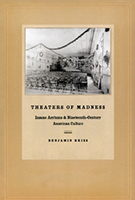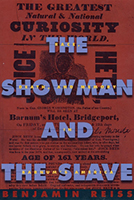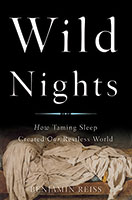Benjamin ReissSamuel Candler Dobbs Professor of English
Biography
Benjamin Reiss (Ph.D. UC Berkeley, 1997), Professor and Chair of English, specializes in 19th-century American literature, disability studies, health humanities, and public humanities. His most recent book, Wild Nights: How Taming Sleep Created Our Restless World (Basic Books, 2017), uses literature, history, science, and psychology to explain how our society created rules and expectations for human sleep that led to social conflicts, inequities, and pervasive worry about managing sleep. His edited book, A Cultural History of Sleep in the Age of Revolutions, is forthcoming from Bloomsbury Academic. And a new project on the pre-history of neurodiversity in the nineteenth-century US, is underway, with a seed article on mental disability within the Transcendentalist community forthcoming in American Literary History.
Reiss is also the author of The Showman and the Slave: Race, Death, and Memory in Barnum's America (Harvard UP, 2001; repr. 2010) and Theaters of Madness: Insane Asylums and Nineteenth-Century American Culture (University of Chicago Press, 2008), as well as essays in journals including American Literature, American Literary History, Social Text, ELH, American Quarterly, Perspectives in Biology and Medicine, Sleep, and Sleep Health. His work also has appeared in the Los Angeles Times (here, here, and here), the Chronicle of Higher Education, the Los Angeles Review of Books, and Slate.
He is a co-editor editor of the Cambridge History of the American Novel (Cambridge University Press, 2011) and Keywords for Disability Studies (New York University Press, 2015). And he is a founding director of Emory’s Disability Studies Initiative.
Professor Reiss teaches courses in traditional literary periods (such as the Nineteenth-Century American Novel, Literary Transcendentalism, and Antebellum American Literature), as well as courses that blend literary analysis with cultural studies, cultural and social history, and the history of medicine and disability. These include Literature and Madness; The Neurodiverse Nineteenth Century; Sleep Across the Disciplines; and Disability and American Culture. Along with Tom Rogers of the Department of History, he led a group of eighteen faculty members and graduate students in developing a regularly offered Public Humanities graduate seminar, involving community engaged research projects that draw on humanistic research skills and methods.
Reiss has also taught at Tulane University, and he is the recipient of grants and fellowships from the Guggenheim Foundation, the Mellon Foundation, the NEH, the Louisiana Board of Regents, and Emory's Fox Center for Humanistic Inquiry. In 2021, he was awarded Laney Graduate School’s Provost Distinguished Teaching Award.
Education
- Ph.D., UC Berkeley



